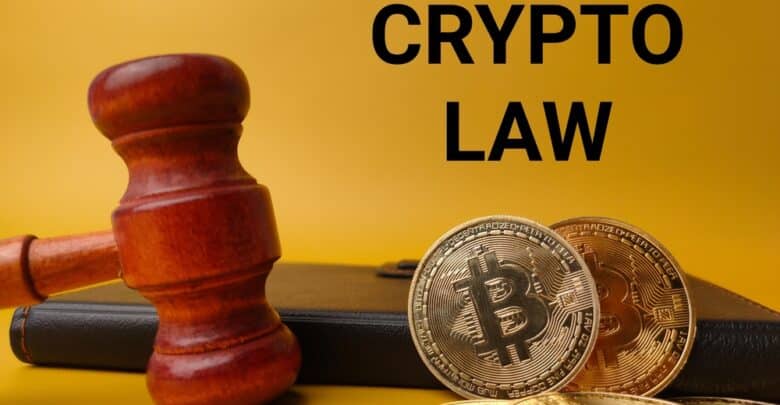Senator Lummis Reignites Move to Remedy Erratic Regulatory Framework for Cryptos

Senator Cynthia Lummis reiterated the need to amend the erratic regulatory framework to govern cryptos. She affirmed readiness to reintroduce the bipartisan bill she co-formulated alongside Senator Kirsten Gillibrand.
The two senators restated their desire to front a bipartisan bill aimed at regulating the digital asset industry. Senator Lummis, when appearing on Wednesday, July 12, during CNBC’s Squawk Box session, announced she was reigniting the push to have the revised crypto regulation bill pass.
During her appearance on the Wednesday morning program, Senator Lummis revealed that they spent the past year updating the crypto bill they co-sponsored in 2022. The Wyoming Republican restated the essence of swiftly reconsidering amending the retracting crypto regulation given the widespread integration of digital assets in the economy.
Senator Lummis would later tweet an account of the proposals captured in the bill they co-sponsored with Sen. Gillibrand. The bill outlines the registration requirements that crypto exchanges should fulfill. Primarily, the bill proposes a divided regulatory responsibility scope for various agencies.
RFIA Bill Set to Resolve the Security versus Commodity Label
The renewed push by ‘Bitcoin Senator’ coincides with a period when the US crypto industry is caught in headwinds and tailwinds. The regulatory aspect features the Securities and Exchange Commission (SEC) that opened lawsuits against the two largest crypto exchanges – Binance and Coinbase.
The security agency alleged a breach of securities laws with a dozen tokens classified as securities. The lawsuits initiated only 24 hours apart shocked the digital assets industry. It triggered speculations of an uncertain future for the US crypto industry.
The bright spots are lit by the BlackRock move to file for SEC’s approval for the exchange-traded fund involving Bitcoin spot markets. The June 15 filing by BlackRock triggered similar applications from Ark Invest, Valkyrie, and Invesco. The hype and optimism characterizing the Bitcoin ETFs application delivered exuberance that propelled Bitcoin to its year-to-date high levels.
Senator Lummis profiled the proposed bill, featuring an amended version of the Responsible Financial Innovation Act (RFIA) 2022. The previous version desired to arrest the thorniest concern being language to apply in categorizing tokens as either commodity or security. The senators proposed that a defined criterion would end the fierce rivalry pitting SEC against the Commodities Futures Trading Commission (CFTC).
Senator Lummis revisited her pronouncement to reintroduce a slimmed-down version after the previous version fell short. She indicated a desire to integrate regulators’ and industry’s feedback when revising the proposal.
Congress and SEC Blamed for Erratic Regulatory Framework
Lummis emphasized in the morning interview that Gary Gensler-chaired SEC was to blame for deploying the enforcement-driven approach to regulate cryptos. She admitted that Congress, too, is to blame for the failure to formulate clear rules.
Senator Lummis admitted that Congress remains reserved in passing a crypto regulatory bill. She added that the SEC has failed to offer the proactive guidance the entities need, thus responsible for the erratic regulatory framework.
Lummis considers that the solution to the erratic regulatory framework includes provisions that clarify when the token qualifies as a commodity and security. The senator proposes the creation of a new authority that will draw membership from the SEC and CFTC to address the commodity versus security identity tussle.
RFIA Garners Support by Cryptoverse
The reintroduction of RFIA is receiving warm support from the crypto-verse. Georgia Quinn, who serves in the general counsel role for Anchorage Digital, considers the bill signaling a major milestone for the Senate.
The counsel for the digital asset bank considers the Bipartisan legislation as yielding the path to regulatory clarity, safeguarding consumers, and triggering market structure reforms needed for the digital asset ecosystem.
Gabriel Shapiro, identified as Delphi Labs’ general counsel, demonstrated a lukewarm tone in his tweet. He observed that while the text is not yet public to judge, the provisions seem deferential to the current securities laws.
Shapiro warns that the bill could trigger confusion, particularly by incorporating the feedback garnered from SEC and crypto firms. He warns that accommodating the feedback would broaden the gray area. The counsel considers it could bring confusion by deferring to the existing Howey test standard and not rewriting the securities laws to cover particular tokens sensibly.
Marching to Bipartisan Crypto Bill
The House bill is still working on the bill steered by two Republican-led committees. Representative Patrick McHenry, who chairs the House Financial Services Committee, identifies as a chief advocate of the bill. He desires the final bill to capture a bipartisan proposal.
Rep. McHenry indicates that the House Democrats raised concerns on several provisions and are yet to dismiss the bill. Nonetheless, they are concerned that the current text weakens the SEC, spares, and shields the bad crypto actors from facing punishment.
Tokenhell produces content exposure for over 5,000 crypto companies and you can be one of them too! Contact at [email protected] if you have any questions. Cryptocurrencies are highly volatile, conduct your own research before making any investment decisions. Some of the posts on this website are guest posts or paid posts that are not written by Tokenhell authors (namely Crypto Cable , Sponsored Articles and Press Release content) and the views expressed in these types of posts do not reflect the views of this website. CreditInsightHubs is not responsible for the content, accuracy, quality, advertising, products or any other content or banners (ad space) posted on the site. Read full terms and conditions / disclaimer.





